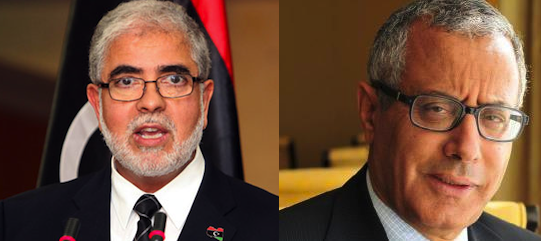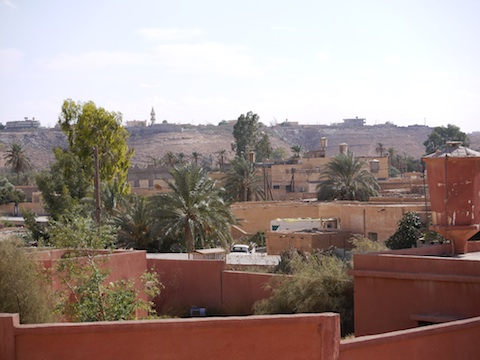
New York, 28 October 2012:
In response to Hanan al-Mansouri’s piece “Abushagur’s dismissal not such a disaster“, dated 9 . . .[restrict]October 2012, written in response to “Libya’s current political crisis could lead to disaster“, dated 6 October 6 2012.
Certainly much of Al-Mansouri’s arguments are agreeable, particularly the ideas that Libya’s future is greater than one man, and that democracy is messy. Her assessment of Mustafa Abushagur’s political challenges and how the no-confidence vote occurred is also largely accurate. However, this author must take issue with Al-Mansouri’s misunderstanding of the original argument.
It is not the potential dismissal of Abushagur that is problematic, it is how it was done. Al-Mansouri is correct in stating that parliaments vote no-confidence all over the world, regularly, and they ought to be able to. The State of California in the United States even has (in)famous recalls that can remove elected officials.
But one thing is clear in all other examples – the elected official is allowed to actually take office before being removed. Just as democracy is about the will of the people and the vote, democracy is also about allowing officials to serve their terms, and governments able to execute on treaties or decisions that are made. Abushagur did not spend a single day as prime minister. The process would have been equally concerning had it been a Prime Minister-elect Mahmoud Jibril.
Coupled with a General National Congress which has already overstepped its original mandate in many ways, a weak executive with no real authority is crippling for the nation. Who, then, will foreign governments and international agencies engage with? 200 separate members of the GNC? And to push back a little on how the world sees Libya’s political turmoil – just the day before yesterday, this author had a discussion with a high-level Western government office, who asked, “who is the prime minister this week?” Many ministers and heads of agencies in Libya have seen themselves in severe lame duck status, unable to have decisions respected because “next week it will be someone else.”
With so much happening throughout Libya, the timing could not have been worse. Despite Al-Mansouri’s assessment that it was all much ado about nothing, since both of our pieces were written Bani Walid was shelled, civilians killed and many arbitrarily detained by militia forces acting completely outside of the control of the government, raising alarms at the United Nations and many international human rights organisations.
Rather than parse words, here is what is most important. Prime Minister-elect Ali Zidan is now shortly to present his new proposed cabinet. The National Congress must quickly empower a credible executive to take up the most urgent duties of state. Whether the prime minister be of the National Front Alliance, the Justice and Construction Party, or an independent, they must be given the opportunity and resources to do their work. It matters less who is elected, and more that they can actually take and exercise power. The new prime minister must solidify authority over the Ministries of Interior and Defense, absorb or disarm militias, and exercise authority over the situation in Bani Walid – all things that are already obvious priorities.
It must be made clear that the new prime minister will serve a foreseeable proper term, so that bureaucrats, militias and state organs know they must defer to executive authority. Most importantly, Zidan must reform the systems of state and the foreign ministry to allow confidence in Libya’s decision-makers and secure communication state-to-state, so that foreign powers can credibly engage Libya’s leaders and trust that promises will be kept and the right decisions made. A credible government will also facilitate the return of billions of frozen assets and funds abroad needed to help rebuild Libya.
The arguments this author made in the original piece still stand. Unilateral strikes, via drone or otherwise, are more likely than many Libyan pundits seem to realise. Unless an authoritative Libyan interlocutor is in place, and Libyan security forces are able to counter violent extremism that came to a head on 11 September 11 2012 in Benghazi, foreign powers may seek to take care of the “matter” themselves. There is more than enough precedent in recent years.
Al-Mansouri took issue with the author’s perhaps excessive usage of “mays” and “potentials.” But in many ways policy is a game of probabilities – creating conditions to boost the likelihood of good things happening, and decreasing the chances that bad things will. Ultimately much of our world is out of the control of state actors, and perhaps that is a good thing in some ways.
The Libyan people have a proud spirit, and are up to the task of moving the nation forward. And watching democracy in action elsewhere is many times similarly despairing. But in Libya today there is a great deal at stake, and the country is at a tipping point.
The path Libya chooses will also affect many non-Libyans around the world. The GNC must empower fully Ali Zidan’s new cabinet and then move on to the business of drafting a new constitution, and the silent majority must give Zidan full support in stewarding Libya in the next phase. For all the feelings of doom and gloom that this author’s piece may have evoked, it is important to recognise and fully appreciate problems and threats – that is the job of government.
The author hopes very much that all his worries were for naught. Thank you to Al-Mansouri for her thoughtful critique and perspective, and to the Libya Herald allowing us the forum for such debate.
Adrian Hong is managing director of Pegasus Strategies LLC.
The views expressed in Opinion articles do not necessarily reflect those of the Libya Herald.
[/restrict]




